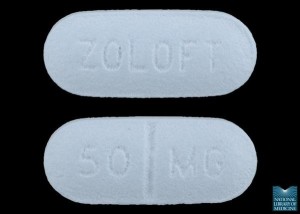New Expert To Appear in Zoloft Birth Defect Lawsuits
The plaintiffs in hundreds of Zoloft birth defect lawsuits pending in a federal multidistrict litigation (MDL) have been granted a second chance to strengthen their claims. On January 7, 2015, Judge Cynthia M. Rufe, the judge presiding over the Zoloft MDL in the United States District Court for the Eastern District of Pennsylvania, issued a pretrial order granting the plaintiffs group’s motion to present a new expert witness. The new plaintiffs’ expert is being presented to testify on general causation.
Prenatal Zoloft use linked to birth defects
Hundreds of Zoloft lawsuits have been filed over birth defects linked to the antidepressant. Zoloft, the brand name of the drug sertraline, is an SSRI-type antidepressant manufactured by Pfizer that was initially promoted as safe to take in pregnancy. But over time, researchers have observed that Zoloft use during pregnancy is tied to an increased risk of defects like persistent pulmonary hypertension (PPHN), a serious lung condition that can prevent an infant from bringing enough oxygen into the bloodstream.
A newborn’s likelihood of developing PPHN is six times higher if the mother took an SSRI while pregnant. Other related birth complications include apnea, seizures, heart defects, difficulty feeding, irritability, trouble regulating body temperature, autism, and malformations of the skull or brain.
Pfizer challenges plaintiffs’ expert witnesses
In lawsuits, parties have the right to challenge the scientific basis of another party’s expert witnesses; the party presenting the witness must be able to show that his or her expert testimony is based upon the scientific method. This is known as the Daubert standard.
The new expert proposed by the plaintiffs is their fifth proposed causation expert. After a Daubert challenge by the defendants, Judge Rufe struck or limited the testimony of the first four experts. This may potentially leave the plaintiffs without sufficient expert testimony to prove the causative relationship between Zoloft use and the heart defects suffered, which could cripple their cases.
Defendant Pfizer, unsurprisingly, vigorously opposed the plaintiffs’ motion to present a fifth causation expert. Pointing out that the court-ordered expert identification deadline had come and gone before the new witness was identified, Pfizer accused the plaintiffs of seeking a “Daubert do-over”. In a lengthy memorandum opinion, Judge Rufe conceded that this argument would make sense in a more traditional lawsuit but that MDL presents special circumstances.
Ruling benefits future plaintiffs in Zoloft birth defect lawsuits
In MDL, plaintiffs can file lawsuits and join the litigation already in progress. The individual plaintiffs maintain their separate claims and, for example, a settlement with or dismissal by one plaintiff is not binding on the other plaintiffs. But MDL is more efficient because the judge’s pretrial discovery rulings are binding on other, including future, plaintiffs. For this reason, MDL presiding judges have an extra wide latitude of discretion in deciding pretrial matters.
Judge Rufe, in her memorandum opinion, cited to the effect on plaintiffs in state courts who had not yet joined the federal MDL as a factor in approving the plaintiffs’ motion. In the same order, she dismissed without prejudice the defendants’ motion for summary judgment. If she had granted the motion, it would have ended the cases in favor of the defendants.
- United States District Court Eastern District of Pennsylvania, MDL 2342 Pretrial Orders, https://www.paed.uscourts.gov/mdl2342o.asp
- U.S. Food & Drug Administration, FDA Drug Safety Communication: Selective serotonin reuptake inhibitor (SSRI) antidepressant use during pregnancy and reports of a rare heart and lung condition in newborn babies, http://www.fda.gov/Drugs/DrugSafety/ucm283375.htm


 Resources
Resources
 Resources
Resources
